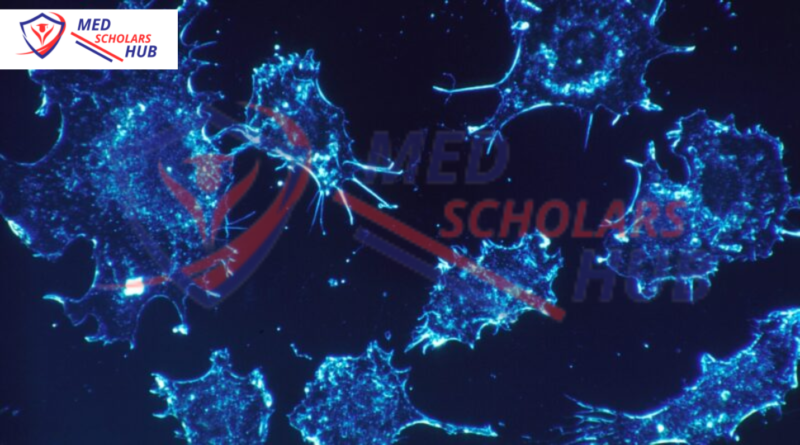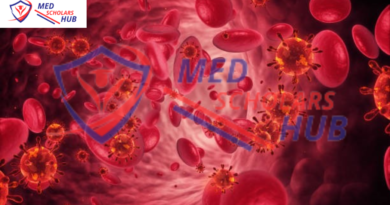Advancements in Targeted Therapies for Hematological Malignancies
Targeting cancer cells with specificity while preserving healthy cells has become possible because of developments in targeted therapy for hematological malignancies, improving patient outcomes and minimizing adverse effects.
A type of diseases known as hematological malignancies involve the lymphatic system, bone marrow, and blood. These illnesses are brought on by the aberrant growth and division of blood cells, which causes an unchecked increase of malignant cells. They have the potential to interfere with the immune system’s regular operations, hinder the creation of healthy blood cells, and result in a variety of symptoms, such as weariness, infections, and bleeding problems.
What is Hematological Malignancies?
Blood cancers, sometimes referred to as hematological malignancies, are a category of illnesses that start in the lymphatic, bone marrow, and blood. These malignancies develop when blood cells expand and divide abnormally, interfering with normal blood cell synthesis and function. Leukemia, lymphoma, and multiple myeloma are just a few examples of the disorders that fall under the category of hematological malignancies. Each has distinct traits and different ways of treatment. These cancers have the potential to significantly affect a person’s general health and well-being, necessitating specialized and focused medications for effective treatment.

Target Therapy in Hematological Malignancies:
A form of cancer treatment known as targeted therapy specifically targets cancer cells while preserving healthy cells. Targeted therapies, as opposed to conventional chemotherapy, aim to obstruct particular biochemical pathways that are essential for cancer development and survival. Traditional chemotherapy kills both diseased and healthy cells. Targeted treatments have showed considerable promise in hematological malignancies in terms of increasing treatment results and lowering the toxicity related to conventional chemotherapy. The following are some crucial aspects of targeted therapy for hematological malignancies:
- Specific targeting of cancer cells: Targeted therapies are created to identify and bind to particular chemicals or receptors present in cancer cells, preventing their growth and encouraging cell death.
- Personalized approach: Targeted therapy can be customized to a patient’s unique cancer characteristics, such as genetic abnormalities or gene expression profiles. This enables the use of more accurate and successful therapeutic methods.
- Combination therapies: In order to increase the efficacy of targeted therapies and circumvent resistance mechanisms, they can be used in conjunction with other therapeutic methods like chemotherapy or immunotherapy.
Related Article: What Is the Difference between Oncology and Hematology – What is Hematologic-Oncology?
Advancements in Targeted Therapies for Hematological Malignancies:
1.Monoclonal Antibodies

Monoclonal antibodies are synthetic molecules that have the ability to recognize and bind to particular antigens found on cancer cells. These antibodies can be created to either engage the immune system against cancer cells or to deliver poisonous chemicals directly to cancer cells. Monoclonal antibodies have demonstrated exceptional efficacy in treating hematological cancers. For instance, rituximab, a monoclonal antibody that targets CD20, has completely changed how B-cell lymphomas treatment takes place.
2. Small Molecule Inhibitors:
Small molecule inhibitors are medications that can obstruct particular signaling pathways or enzymes crucial to the growth and survival of cancer. They frequently take effect against cancer cells in the bone marrow and circulation and oral consumption is the only way. For the treatment of hematological malignancies, numerous small molecule inhibitors have recently received approval. Tyrosine kinase inhibitors, like imatinib, have demonstrated notable success in the treatment of chronic myeloid leukemia (CML), for instance.
3. Chimeric Antigen Receptor (CAR) T-cell Therapy:
With the revolutionary immunotherapy known as CAR T-cell treatment, a patient’s own T cells are altered to express chimeric antigen receptors that can recognize and bind to particular antigens on cancer cells. These CAR T cells can efficiently target and kill cancer cells after re-infused into the patient’s bloodstream. Acute lymphoblastic leukemia and non-Hodgkin lymphoma are two hematological cancers that have responded exceptionally well to CAR T-cell therapy.
Approved CAR T-cell therapies By the US Food and Drug Administration (FDA)
Currently Approved CAR T-Cell Therapies Include:
- Idecabtagene vicleucel, also known as ide-cel (Abecma)
- Axicabtagene ciloleucel, also known as axi-cel (Yescarta)
- Ciltacabtegene autoleucel, also known as cilta-cel (Carvykti)
- Tisagenlecleucel, also known as tisa-cel (Kymriah)
- Brexucabtagene autoleucel, also known as brexu-cel (Tecartus)
- Lisocabtagene maraleucel, also known as liso-cel (Breyanzi)
Putting it all Together:
Targeted treatments for hematological malignancies have made significant strides in recent years. The introduction of monoclonal antibodies, small chemical inhibitors, and car t-cell therapy has completely changed the treatment environment. And all these three of them give patients fresh hope. Clinical trials and more research are being conducted to investigate novel targets and combination medicines. They may improve treatment outcomes and quality of life for people with hematological malignancies. Targeted therapies are positioned to play a significant role in the future of cancer therapy with continuous breakthroughs and a personalized approach.




